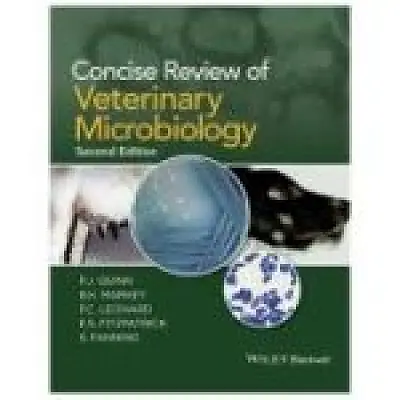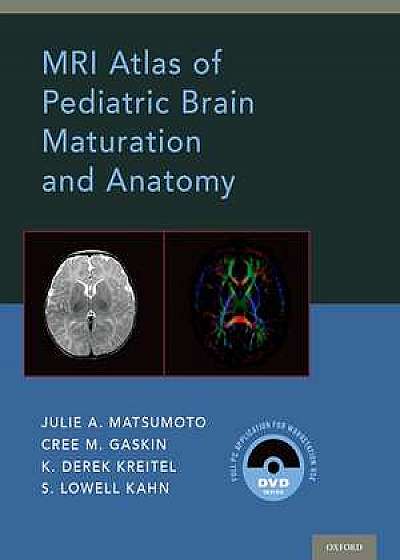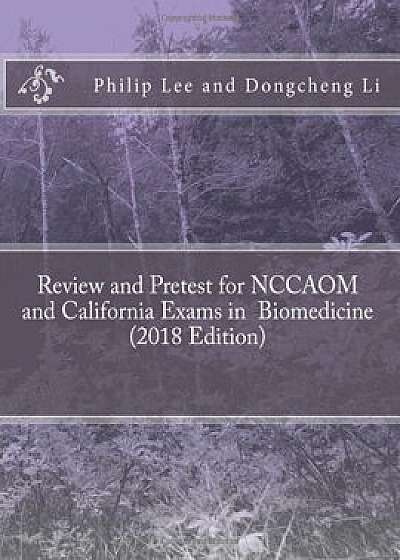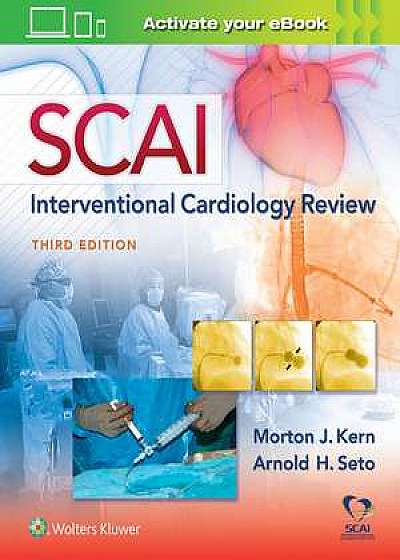
Concise Review of Veterinary Microbiology, 2nd Edition
Descriere
Updated to reflect the latest developments in the field, Concise Review of Veterinary Microbiology, 2nd Edition, presents essential information on veterinary microbiology for students and those requiring a refresher on key topics relating to microbial diseases in animals. Morphological, cultural and other descriptive features of pathogenic microorganisms are described, together with their habitats and aetiological roles in disease production in animals and, where appropriate, in the human population. Key features: There are five sections covering bacteriology, mycology, virology, biosecurity and other aspects of infectious diseases Provides concise, yet comprehensive information on pathogenic microorganisms of importance in veterinary medicine, the diseases which they cause, their diagnosis and control The 79 short chapters in this book include 13 new chapters on antibacterial resistance, structure and function of the immune system, antifungal chemotherapy, antiviral chemotherapy, principles of biosecurity and a number of topics related to the control and prevention of infectious diseases This latest edition uses updated nomenclature and includes detailed diagrams now in full colour, and comprehensive tables Updated to reflect the latest developments in the field, Concise Review of Veterinary Microbiology, Second Edition, presents essential information on veterinary microbiology for students and those requiring a refresher on key topics relating to microbial diseases in animals. Morphological, cultural and other descriptive features of pathogenic microorganisms are described, together with their habitats and aetiological roles in disease production in animals and, where appropriate, in the human population. Key features There are five sections covering bacteriology, mycology, virology, biosecurity and other aspects of infectious diseases Provides concise, yet comprehensive information on pathogenic microorganisms of importance in veterinary medicine, the diseases which they cause, their diagnosis and control The 79 short chapters in this book include 13 new chapters on antibacterial resistance, structure and function of the immune system, antifungal chemotherapy, antiviral chemotherapy, principles of biosecurity and a number of topics related to the control and prevention of infectious diseases This latest edition uses updated nomenclature and includes detailed diagrams now in full colour, as well as comprehensive tables Provides veterinary students, veterinary technician and nursing students, and practitioners alike with an essential resource for the review of all aspects of veterinary microbiology. Textul de pe ultima coperta Updated to reflect the latest developments in the field, Concise Review of Veterinary Microbiology, Second Edition, presents essential information on veterinary microbiology for students and those requiring a refresher on key topics relating to microbial diseases in animals. Morphological, cultural and other descriptive features of pathogenic microorganisms are described, together with their habitats and aetiological roles in disease production in animals and, where appropriate, in the human population. Key features There are five sections covering bacteriology, mycology, virology, biosecurity and other aspects of infectious diseases Provides concise, yet comprehensive information on pathogenic microorganisms of importance in veterinary medicine, the diseases which they cause, their diagnosis and control The 79 short chapters in this book include 13 new chapters on antibacterial resistance, structure and function of the immune system, antifungal chemotherapy, antiviral chemotherapy, principles of biosecurity and a number of topics related to the control and prevention of infectious diseases This latest edition uses updated nomenclature and includes detailed diagrams now in full colour, as well as comprehensive tables Provides veterinary students, veterinary technician and nursing students, and practitioners alike with an essential resource for the review of all aspects of veterinary microbiology. Nota biografica P. J. Quinn MVB, PhD, MRCVS is Professor Emeritus, School of Veterinary Medicine, University College Dublin. From 1985 to 2002 he was Professor of Veterinary Microbiology and Parasitology and head of that department. He is a senior co–author of a number of books and co–author of a text on veterinary embryology with E. S. FitzPatrick. In 2006, he was recipient of the Association of Veterinary Teachers and Research Workers outstanding teaching award. B. K. Markey MVB, PhD, MRCVS, Dip. Stat is a Senior Lecturer in Veterinary Microbiology in the School of Veterinary Medicine, University College Dublin (UCD). He qualified as a veterinary surgeon in 1985, joining the academic staff of the Department of Veterinary Microbiology and Parasitology, UCD a year later. He served as Head of Department between 2002 and 2004. In 2005 he was visiting professor at the College of Life Sciences, Queensland University of Technology, Brisbane. He has contributed chapters and co–authored several books in the field of veterinary microbiology. F. C. Leonard MVB, PhD, MRCVS is a Veterinary Surgeon and Senior Lecturer in Veterinary Microbiology in the School of Veterinary Medicine, University College Dublin. She gained her PhD for research on leptospirosis in dairy cattle, and has been teaching veterinary microbiology since 1997. Her research interests include zoonotic infections, and antimicrobial resistance. E. S. Fitzpatrick FIBMS, FRMS is Former Chief Technical Officer in the School of Veterinary Medicine, University College Dublin. He has taught veterinary anatomy and histology for over 25 years. His research interests have included the interaction of microbial pathogens with epithelial surfaces, especially of the bovine and equine reproductive tracts. He is, along with P. J. Quinn, co–author Veterinary Embryology, also published by Wiley Blackwell. S. Fanning BSc, PhD is Professor of Food Safety and Zoonoses in the School of Public Health, Physiotherapy and Population Science, University College Dublin. He was awarded a Fulbright Fellowship in 1995 and worked at Baylor College of Medicine, Houston. His research interests include the application of molecular methods to food safety to aid in the control of zoonotic bacteria and tackling multiple drug resistance in food–borne pathogens. The UCD Centre for Food Safety, which he founded in 2002 and of which he is currently Director, was designated in 2009 as the World Health Organization (WHO) Collaborating Centre for Research, Reference and Training on Cronobacter.





